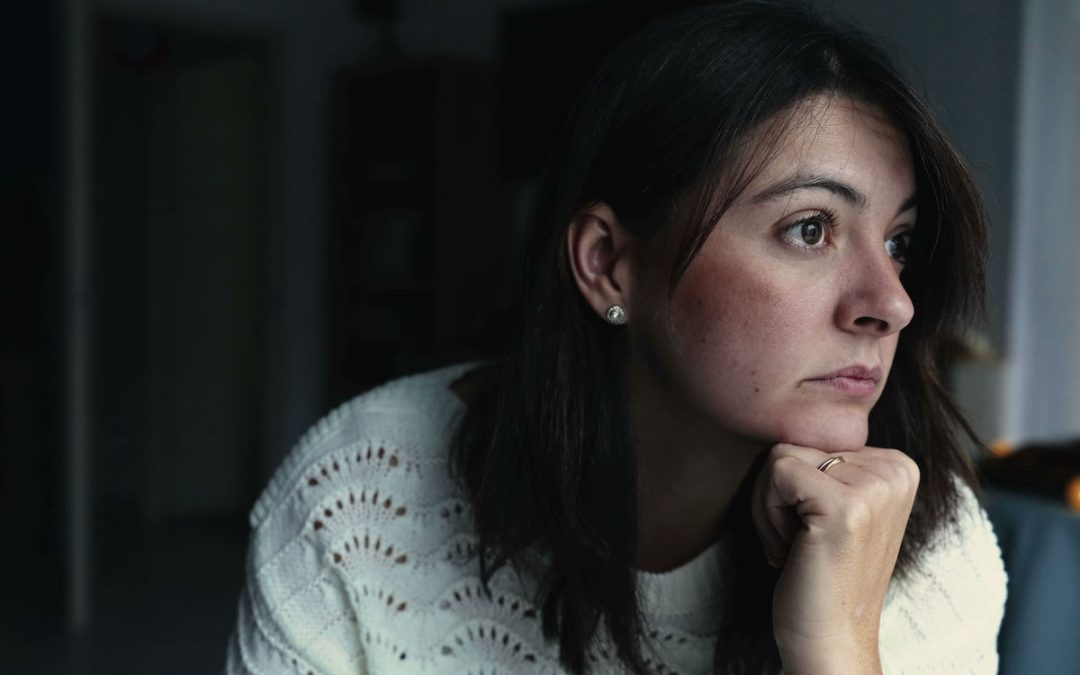Quick Summary
Structured discharge planning and step-down care after psychiatric hospitalization can reduce rehospitalization rates by up to 34% among people with mental health conditions. Rosebay Behavioral Health in San Anselmo offers post-hospitalization programs including residential treatment, Partial Hospitalization (PHP), and Intensive Outpatient (IOP) that bridge the gap between crisis care and long-term recovery.
These programs provide therapy, medication management, trauma-informed care, and family involvement to help individuals stabilize and build coping skills during the vulnerable weeks following discharge.
Key Takeaways
- Contact a step-down program like PHP or IOP within days of discharge to maintain structure and reduce relapse risk during the vulnerable post-hospitalization period.
- Request a clinical assessment to determine whether residential, partial hospitalization, or intensive outpatient care fits your current symptom severity and daily obligations.
- Ensure your discharge plan includes individual therapy, group therapy, and medication management rather than relying solely on a follow-up psychiatrist appointment.
- Involve family members in discharge planning and family therapy sessions, as family involvement is associated with higher rates of entry into follow-up care.
Post-Hospitalization Mental Health Support
Coming home after a psychiatric hospitalization, whether it was a 72-hour hold, a 5250, or a short-term inpatient stay, can feel like stepping into unfamiliar territory. You or your loved one may have received immediate care during a mental health crisis, but what comes next isn’t always clear. Discharge papers might list a few phone numbers or medication instructions, but long-term healing rarely fits neatly into a packet of paperwork.
That period after discharge is when long-term recovery starts, and it can feel uncertain without the right kind of help. After discharge, having a clear plan matters. According to a systematic review published in the Journal of Clinical Medicine, discharge planning reduces rehospitalization rates by up to 34% among people with mental health conditions.
Whether you’re feeling overwhelmed, uncertain, or just need a path forward, Rosebay Behavioral Health in San Anselmo is here to help you find stability and hope after crisis care. Our programs help bridge the gap between short-term hospital care and sustained mental health treatment, offering structure, connection, and reliable support.
What to Expect After Psychiatric Hospital Discharge
Even After Discharge, Recovery Needs Structure
Most psychiatric hospital stays are focused on immediate safety. Many people leave the hospital without:
- A therapist or psychiatrist lined up for follow-up care
- Clear instructions for managing medications
- Tools to process what just happened emotionally
Many individuals and families understandably feel confused, scared, or even abandoned during this time.
Preventing Mental Health Relapse With Continued Support
The days and weeks following psychiatric hospitalization are some of the most vulnerable. Without continued structure, it’s easy to fall into patterns that trigger another crisis. Medication lapses, emotional overwhelm, isolation, and untreated symptoms can quietly build until another hospitalization feels inevitable.
Support beyond hospitalization can interrupt that cycle. Continued care lowers the risk of relapse, helps with medication follow-through, and gives people more control over their mental health.
Challenges After Psychiatric Stabilization
Why Hospital Psychiatric Care Often Falls Short
Emergency psychiatric units play a critical role, but they aren’t built for long-term therapeutic care. The focus is often on immediate safety by ensuring a person is no longer at imminent risk. However, there’s usually little time for emotional processing or long-term planning.
Gaps in Psychiatric Discharge Planning
Many people feel pressure to return to daily life quickly, even when continued care is still necessary. Discharge instructions may be limited, and families are often left trying to make sense of what happens next without clear guidance.
Next Steps After Psychiatric Hospitalization in the Bay Area
Levels of Step-Down Mental Health Treatment Options
At Rosebay Behavioral Health, we provide several levels of care that are ideal for post-hospitalization recovery:
- Inpatient Mental Health Treatment: A comprehensive, residential program for individuals who need continued stabilization in a structured, healing environment.
- Partial Hospitalization Program (PHP): A day program offering intensive therapeutic support and psychiatric care five days a week, ideal for those transitioning from inpatient or crisis stabilization.
- Intensive Outpatient Program (IOP): A flexible option with fewer weekly hours that allows clients to continue working, going to school, or managing family life while receiving therapeutic care.
Clients may also benefit from Rosebay’s wellness support services, which focus on long-term emotional, physical, and mental well-being. These programs help individuals gradually step down from hospital-level care while still receiving support across different levels of care.
How Rosebay Supports Recovery After Hospitalization
Rosebay offers structured care and a dependable setting where individuals can stabilize and continue building toward recovery. We offer a compassionate, trauma-informed care setting where individuals can continue healing at their own pace. Our team helps clients build coping skills, process recent events, and form meaningful therapeutic relationships, all while ensuring medical and emotional needs are consistently met.
Some may benefit from a gradual step-down to flexible outpatient care designed to fit around daily life. In some cases, returning to inpatient care may be necessary for those with treatment-resistant symptoms or severe mood disorders. Our team can guide you through the difference between inpatient and outpatient treatment when planning next steps.
Holistic Mental Health Recovery at Rosebay
Therapeutic Treatment for Ongoing Mental Health Stability
Medication is often just one part of a complete mental health treatment plan. At Rosebay, every treatment plan is tailored to address emotional, psychological, and physical wellness. Clients receive:
- Individual therapy
- Group therapy
- Trauma-informed care
- Holistic approaches
- Somatic Experiencing
- CBT and DBT
We meet each person where they are, whether they’re managing depression, PTSD, psychosis, or a combination of overlapping challenges, including bipolar symptoms.
Some may be living with mood disorders or personality disorders that require more tailored care. Rosebay also supports individuals struggling with anxiety, whether generalized or situation-specific.
Mental Health Discharge Support for Families
How Families Can Advocate for Mental Health Care After Discharge
It’s often family members who are left searching for the next step after a loved one is discharged from the hospital. If this sounds familiar, you’re not the only one facing these questions.
As reported in PsychiatryOnline, family involvement in discharge planning is associated with entry into follow-up care by patients, helping to support more stable transitions after hospitalization. Asking the right questions during discharge planning, looking for treatment beyond just a follow-up psychiatrist, and choosing a program that addresses long-term care can make a critical difference.
How Rosebay Involves Families in Treatment
We include families when appropriate by offering education, communication tools, and opportunities to participate in family therapy. Supporting a loved one also means being part of a community that understands both the difficulty and importance of recovery.
Connect With Rosebay to Start Ongoing Mental Health Care
Located in Marin County, the San Francisco area, and throughout the Bay Area, our programs are designed to help individuals stabilize, grow, and thrive beyond crisis care. Our clinical team provides the structure, guidance, and support that many people need after leaving a psychiatric hospital, ensuring that care doesn’t end when discharge papers are signed.
Take the First Step Toward Stability Today
If you or someone you love is navigating the uncertain period after a psychiatric hospitalization, you don’t have to face it alone.
Reach out to Rosebay today to learn how our personalized treatment options can provide the stability and long-term support you need for recovery.
Have more questions about what recovery looks like after a hospital stay? The answers below can help.
Frequently Asked Questions
What is step-down care after psychiatric hospitalization?
Step-down care refers to structured mental health treatment provided after a hospital stay. It includes options like PHP and IOP, which offer therapy, medication management, and support in a less intensive setting than inpatient hospitalization.
How long is mental health recovery after a 5150 hold?
Everyone’s recovery timeline is different. Some may need a few weeks of support, while others benefit from ongoing care for several months. The key is finding the right level of structure and consistency after a crisis.
Can I go straight to outpatient care after being hospitalized?
- Yes, in some cases. This is more likely if symptoms are mild or already well-managed
- But many benefit from PHP or IOP first for added structure and supervision
- A clinical assessment can help determine the best level of care
What does Rosebay Behavioral Health offer after psychiatric hospitalization?
We provide PHP, IOP, and residential treatment options for clients transitioning out of hospital care. Our programs are personalized, trauma-informed, and focused on helping individuals build sustainable wellness.
How can families support loved ones after discharge?
- Attend family therapy sessions when available
- Help manage appointments and follow-up care
- Encourage consistency with medication and treatment
- Offer patience, as recovery often takes time and steady support








